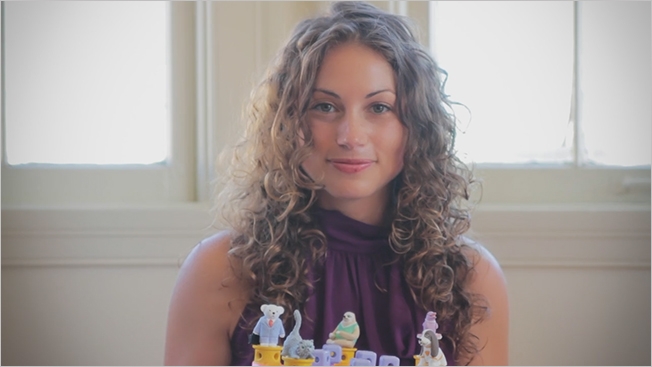Q&A: GoldieBlox Founder Debbie Sterling on Scoring a Super Bowl Spot
Posted in: Uncategorized
Most businesses can only dream of growing big enough one day to advertise in the Super Bowl. So when an 18-month-old startup finds itself running an ad in the game for free, there's no playbook to plan what happens next.
Game maker GoldieBlox recently won Intuit's "Small Business Big Game" promotion, which promised a 30-second ad valued at $4 million in this Sunday's Super Bowl. While GoldieBlox proved itself a savvy marketer with a successful Kickstarter campaign and a highly popular video about empowering girls to invent, the business also ran afoul of intellectual property law and took some heat from the public when it used the Beastie Boys track "Girls" without permission.
Given the odd path that's led GoldieBlox to the big game, it's hard to predict how its Super Bowl ad, created by longtime Honda agency RPA, will be received and how the company will evolve in the year ahead.
So we decided to ask GoldieBlox founder Debbie Sterling about the contest, the controversy and the mission that have all shaped her company's unique fate.
AdFreak: In some ways, it seems like you won a $4 million lottery, but it's not like you didn't have to work for it. How did you react to hearing you'd won the Intuit contest?
Debbie Sterling: It's almost hard to describe how I feel and how I felt the moment I found out we were the grand prize winner. I felt almost like it wasn't just a win for GoldieBlox; it was a win for girls around the world.
One hundred million people are going to see our message about empowering girls. It feels just incredible, incredibly validating that America voted for us and wants us for their daughters. It's not just an ad; it's almost like a revolution.
GoldieBlox seemed to have an early lead in the contest, especially when your video was going viral. Then the debate over the Beastie Boys track seemed to change the tone. Did you worry it would distract people from the contest and supporting your product?
There was a lot of misunderstanding in the media at the time. A lot of people thought that video was supposed to be our big-game commercial, which it wasn't. It was a really hard time for us as a company and me as an individual.
Soundtrack aside, that online video was pretty ambitious. How did it come about?
My team and I were having lunch at a Mexican restaurant, brainstorming ways to get girls interested in science and engineering. We came up with this idea to create a Rube Goldberg device out of toys.
We had remembered seeing the OK Go video, and we wanted to set it to a girl power anthem. We're a pretty small team, but we're really passionate, and we made it ourselves (with OK Go collaborator Brett Doar).
Surely you weren't expecting the clip to become as big of a viral sensation as it did?
You can never know if something's going to go viral. We had no idea. We made a video we felt kind of encapsulated our mission and we hoped would spark some interest in kids.
As great as it must have been to see the video getting all this love and attention, it must have been jarring when the legal debate started and it all got so negative so fast.
It was a really hard time. The controversy around it, it took away from our mission. If you ever come visit GoldieBlox headquarters, you'll see we have written on the wall, "The mission is more important than the company."
The last I heard, the Beastie Boys had filed a countersuit looking for damages and fees. What's the status of the legal debate over the song? Is it still going?
There's still legal stuff going on.
So nothing's been settled?
I can't comment on any of the legal stuff.
Your team is small, and I'm sure allocating resources is a big part of your daily life. Between the Rube Goldberg video and the Intuit contest, how have you made time for product and R&D along with the marketing?
Our main focus is product. We put a lot of work into our product each day.
We think of our marketing and advertising almost as a product, too, in the sense that the videos we've been creating and the community we've been building on our Facebook page, on Twitter and elsewhere in social media, they're all kind of bubbling up to the same goal. In a way, it almost feels like our marketing and product are one.
For most global brands in the Super Bowl, there's a lot of debate about how many millions of products they'll need to sell to make the ad worthwhile, but obviously you're in a different situation. Do you have any sales goals or other metrics for how you'll define a win from your ad this Sunday?
For me, we've already won, because the ad sends a very clear message that girls deserve more than the "pink aisle" has to offer. Having 100 million people see that and talk about it at the dinner table, or have a dad encourage his daughter to invent something … that already is going to come out of this, and that's a win.
This time around it was free. So over the next year, you just have to set aside $5 million or so to buy your next Super Bowl ad.
Hahah, yes. I hope this is not our last Super Bowl ad.
Debbie Sterling graduated from Stanford University with a degree in engineering before becoming the founder and CEO of GoldieBlox. The company now sells three games available primarily through independent toy stores, Toys-R-Us and Target. She hopes to expand the brand into animation and video games in the near future.
![]()






Post a Comment